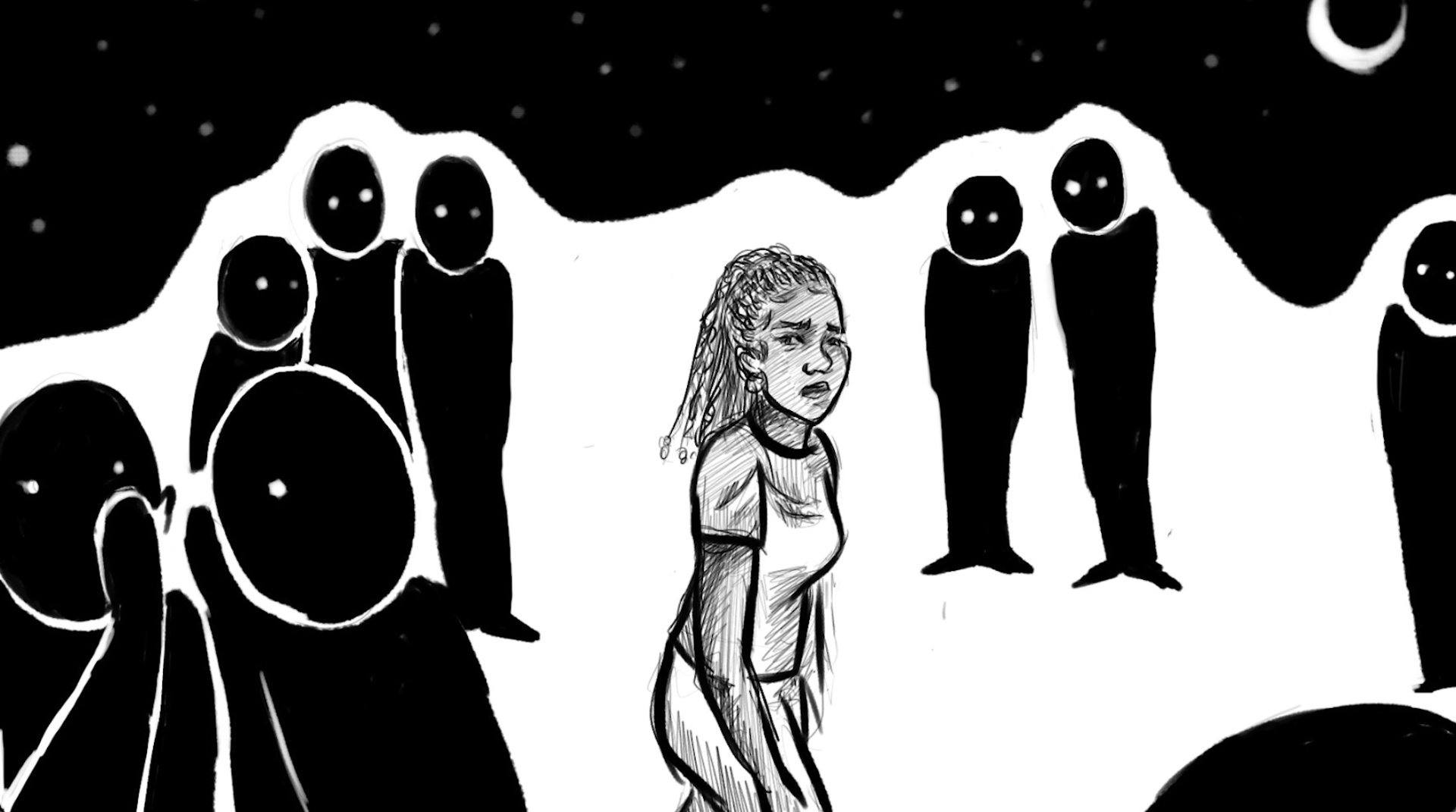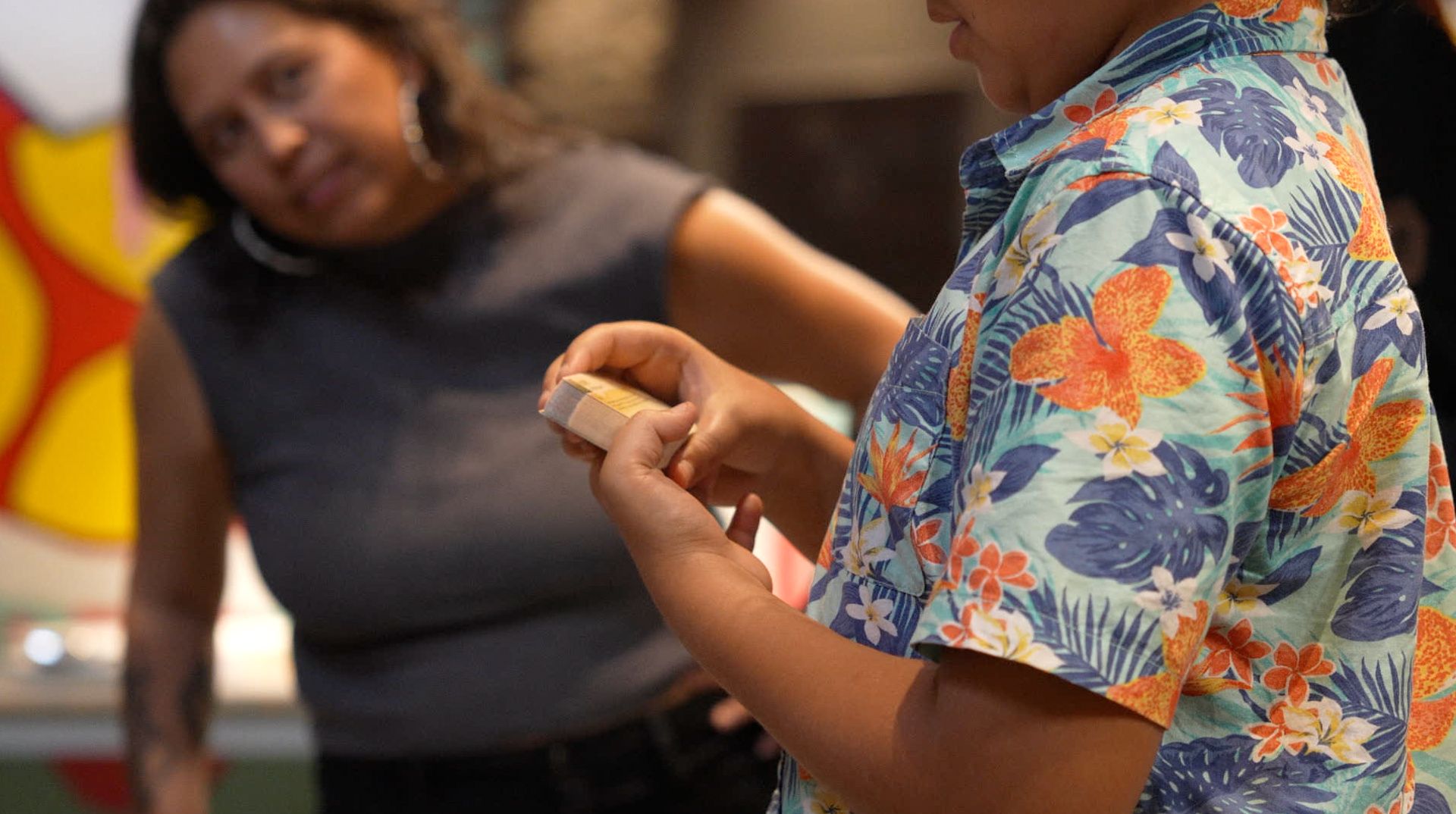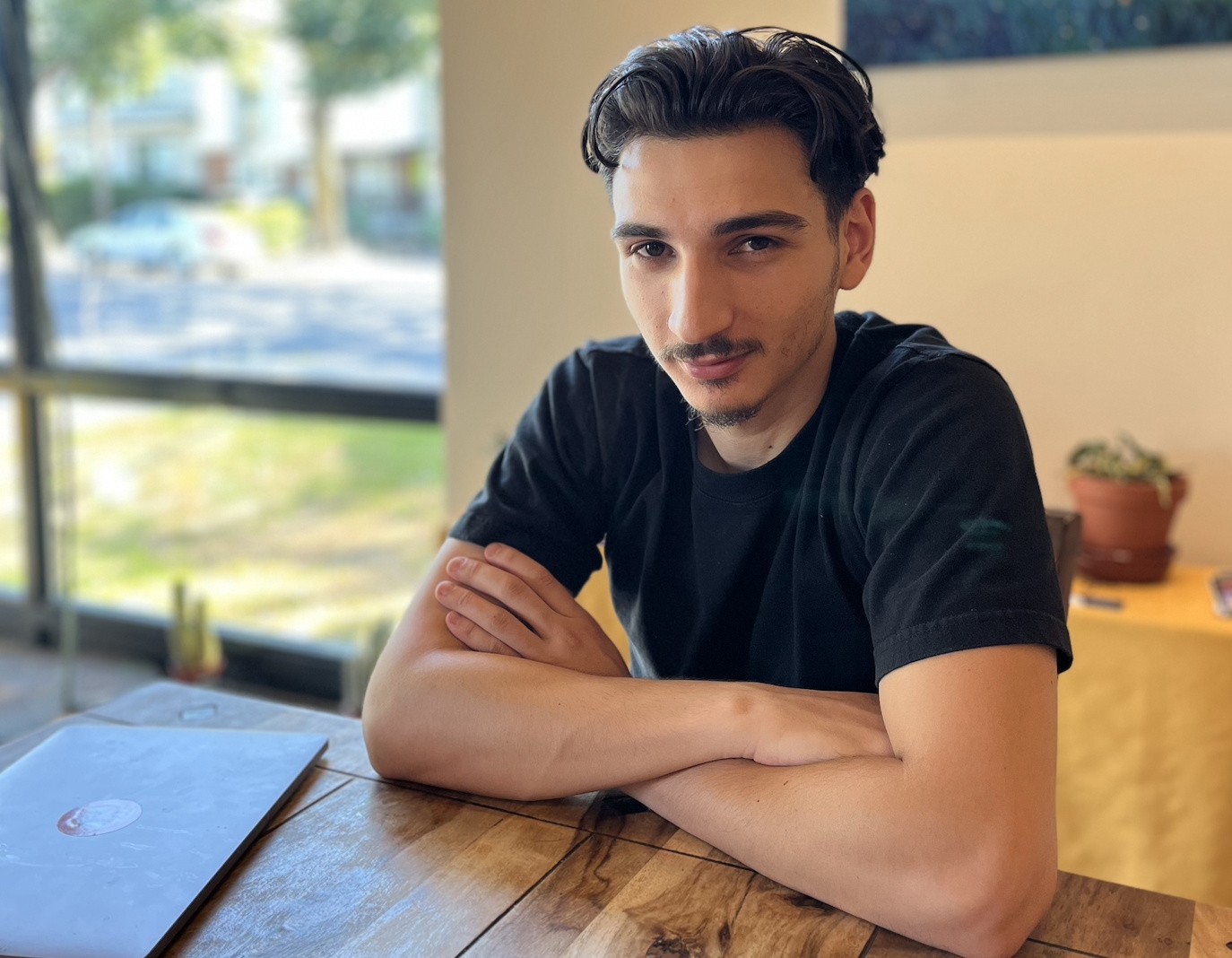“[The celebration of] black excellence encourages you, but with a knife under your throat! exclaims Manuel, a panelist at La Converse during an evening of dialogue organized around the theme of black excellence and its consequences on mental health.
Every year during the month of February, Canada and many countries around the world celebrate Black History Month. This period is dedicated to recognizing and celebrating the history of these communities, but also to highlighting the achievements of some of their members. During this month, the hashtag #BlackExcellence or, in French, #ExcellenceNoire re-emerged strongly on social networks. Despite a pressing need to represent Black people in the media, this celebration of Black excellence is perceived by some as social pressure.
La Converse wanted to welcome Montrealers from black communities to its offices to discuss this subject. Between professionals and students, a dialogue begins.
“Black excellence is a straitjacket”
It is a Wednesday evening, and the studio space at La Converse is receiving its guests. Six panelists are present: Manuel, Adrianna, Nohémie, Lætitia, Paula and Anthony.
Manuel, the oldest member of the group, is an entrepreneur and human resources manager in a private company. In his opinion, black excellence is nothing less than a burden on the community. “It takes away our right to make mistakes. Unlike others, who have the option of being good or bad without being dehumanized, we must constantly do more to be accepted,” he says under the approving gaze of the people in the room.
Nohémie is a government program officer and co-host of the radio program Does that shock you?, broadcast on CISM 89.3 FM. She argues that celebrating Black excellence overshadows the challenges Black people face before achieving success. “We often celebrate someone who has succeeded in their neighborhood, but we don't talk about how their neighborhood didn't help them succeed — due to lack of resources. We emphasize this person by noting that she was able to stand out, when all the young people in the neighborhood should be allowed to stand out.”
These difficulties that Black people face are not limited to the environment in which they grew up, but also to school or professional environments, as our panelists in turn remind us.
“There are still too many 'first blacks'”
The annual report of the Commission des Droits de la Personne et des Droits de la Jeunesse in 2022 indicates that only 11.2% of employees of public bodies are from visible minorities. However, there is no data that specifies the exact percentage of black employees.
Manuel, for his part, notes that Blacks are still largely under-represented in executive positions in Quebec. “There are still too many “first Blacks” in workstations,” he laments, while the others nod their heads. “Several times, I was the first black manager, or even the only black one in my job. In fact, diversity often starts with me,” he continues.
Manuel feels the burden of representing his community with dignity so as not to compromise the chances of other Black people accessing positions like his. “Anything I do could close doors for black people who come after me. There is no choice but to excel at work. I can't just be Manu and just focus on my career.”
Nohémie experienced similar pressure when she founded CÉRA (Comité des Étudiant.E.S. Racialized Étudiants de l'Association Étudiants de Science Politique et Études Internationales de l'Université de Montréal) in 2020. Initially, she and three other classmates wanted to form a committee devoted especially to black people. Faced with a “hostile environment,” she says, the co-founders finally took a more inclusive approach, providing a safe space for all racialized students.
“There was pressure to perform, because it was the first committee of its kind,” she explains. From the start, the students had to deal with negative comments. “There was no room for error then,” she continues. If that had failed, they could have ended the project and never authorized a committee for racialized people again.” In less than two weeks, Nohémie and her team found themselves in a state of exhaustion,” she tells us.
“Black excellence is also about being the best integration model”
The social pressure exerted on black individuals is not limited to their professional performances, but also extends to their behaviors and personalities, make us understand Lætitia, Manuel, Nohémie, Nohémie, Anthony and Paula.
Lætitia, 20, is an international studies student at the University of Montreal and an insurance agent. “We recognize the excellence of black people, but only those who appeal to the Quebec public. Black excellence also means corresponding to the best integration model,” she says.
The young woman acknowledges that, in order to correspond to this model and to be better perceived, she gave up her freedom of choice of clothing and hair for a while. “I have traditional clothes, but I am not going to wear a boubou to go to university, even if I think it's very beautiful. As for my hair, even if it is natural, it must be well plated with gel,” she explains.
Nohémie also says she feels constant pressure to be treated. Unlike her colleagues, she does not allow herself to be casual, even when working from home. “My colleagues will have no trouble telling me that they are in their pajamas; I am not going to tell them that I am in my pajamas — that's not okay! she said with a laugh. “My colleagues can swear, I can't. I know that there are some things that I can't afford to do like the others because it can be misperceived. But no matter what I do, or what I say, in the end, people will always see me as black,” she concludes.
Manuel also observes a certain restraint in his behavior: “You have to be careful. You can't be the”Angry Black Man”, you can't break your bags, you can't have bad days either. You should always be smiling, even when you are exhausted.”
Anthony, a data science consultant, shares a different perspective with us. He says that the pressure he felt was not external, but rather self-imposed. As he grew up, he sought to change how others perceived him, especially because of his childhood stutter. “I walked crooked and was the image of the disabled person who could hardly speak. Then I worked on myself, I started winning marathons and lots of prizes. Every time I excel, I change the perception of the people around me,” he says with pride.
“When you're black, you start out in childhood with a high stress level, at 7 out of 10.”
The concept of black excellence goes far beyond simple external pressure. For many, it takes root in childhood, in homes, with pressure from parents. Some children are raised with the idea that they must surpass themselves, that they must do more than others to hope to succeed one day.
“When you're black, you start out in childhood with a high stress level, at 7 out of 10. Your parents teach you that you have to be twice as good,” says Manuel. Nohémie replies with a knowing smile: “For my part, I always knew that I would go to university, without even knowing what it was; it was predestined, I had to go there.”
Lætitia recalls the stress she felt as a child in the face of failure. “When I had bad grades, I cried. I was really afraid to tell my mom that I had failed an exam. For me, academic validation was something significant.” This pressure imposed by her mother around academic success, Lætitia is still experiencing it. “I feel this pressure: I must reach the goals my mother set for me or surpass them, in the best of cases.”
Adrianna, the youngest member of the group, is a young self-employed marketing strategy consultant and beautician. Unlike the other panelists, she said she had an education that allowed her to discover and express herself without being constantly pressured to excel in all areas. “I didn't have to fight with my parents.” For her, there was no question of being pressured from outside as a black person. “My parents taught me to be human. I'm not trying to be a great black woman, I'm trying to be Adriana and great, that's all.”
She admits that she experienced different treatment when she worked in a bank. However, she refuses to bow to the expectations of the white majority to match a preconceived image of what a black woman should “be” or how she should behave.
“If I didn't have that burden, what would I have done with my life? ”
In the room, many come from immigrant families and are therefore under double pressure: to excel as a member of the Black community and to make their parents proud, who immigrated to improve their quality of life.
Paula, a political science student at the University of Montreal, is one of those who feel this double pressure. Originally from the Dominican Republic, the young woman immigrated at the age of 12. “I have always believed that I did not leave my country for nothing. So I felt that responsibility to do something with my life, and I always wonder what I would have done if I had not had this burden.”
Currently studying, Paula admits that going to college is neither an achievement nor a source of pride for her parents. “In my family, I'm not seen as an example of black excellence; I just do what they think is right,” she says. She then adds, “I don't see why I should excel in my environment to be accepted and loved around me, but I was raised that way, so it's really hard to get rid of that. It's very hard to imagine that it's okay to be mediocre in a field.”
This pressure experienced by people from the Black community particularly affects their ability to rest, our guests tell us. “I am learning to have moments of idleness; it is especially the pandemic that forced me to learn to rest,” Manuel tells us.
“It's okay to be mediocre”
As the evening draws to a close, the speakers discuss initiatives to put in place to stop living under the pressure of black excellence.
For Anthony, celebrating all forms of Black success, even the most modest ones, is essential: “All successes are worth celebrating,” he says. Even a student who succeeds in Secondary 5 is black excellence.” An idea that Lætitia also shares: “We must consider all our successes. Doing the dishes is also black excellence! ” she said to the laughter of the participants.
The panelists agreed that it was important to communicate and connect with people in the community. “You need to talk to people who can understand how you feel,” says Lætitia.
Adrianna concludes this evening of dialogue with a big smile and recalls: “It's okay to be mediocre too! ”




.webp)



%20(1).jpg)
.jpg)
.jpg)